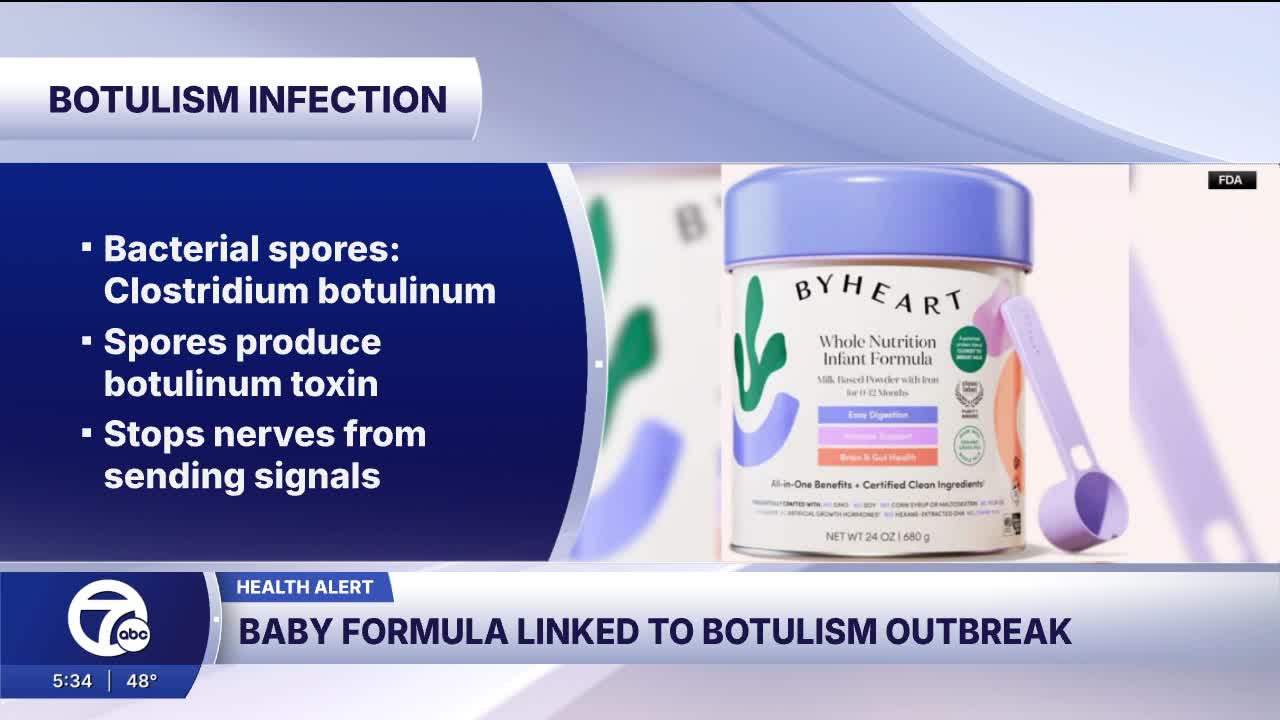(WXYZ) — The Food and Drug Administration’s investigation into a multi-state outbreak of infant botulism continues. Fifteen infants across 12 states are confirmed or suspected to have the illness, and all were hospitalized.
A major recall has now been issued for ByHeart infant formula.
Botulism is very serious, especially for infants. Thankfully, there have been no deaths so far.
The disease happens when a baby swallows tiny bacterial spores called Clostridium botulinum. These spores can grow in the baby’s large intestine and make a toxin called botulinum toxin. This toxin affects the nerves and stops them from sending signals to the muscles.
It can take several days and up to a few weeks for symptoms to appear after a baby consumes contaminated formula. So, parents should watch for signs like constipation, poor feeding, floppy head, weak or unusual cry, blank facial expression, trouble swallowing and difficulty breathing. These symptoms can worsen quickly and become life-threatening, so it’s critical to get medical help right away.
Families who have the formula should stop using the product right away. ByHeart has now expanded its recall to include all ByHeart formula nationwide, including cans and single-serve sticks. But don’t throw it out yet. The FDA recommends taking a picture or recording the information on the bottom of the package. Also, mark the container “Do Not Use,” and keep it in a safe spot in case your health department wants to test it.
Now, if your baby seems fine, keep a close eye on them for the next few weeks. If no symptoms develop after about 30 days, it’s safe to discard the formula.
If botulism is diagnosed, there is a drug called BabyBIG, a human antitoxin that can treat it. If treated early, babies can make a full recovery from infant botulism.
Lastly, one more important point: ByHeart makes up less than 1% of formula sold in the U.S., so there’s no shortage worry for other brands.



